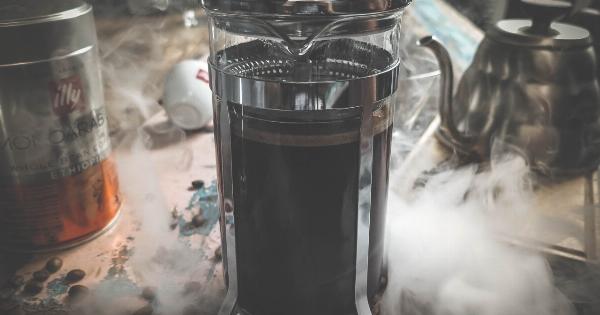Are you an avid coffee lover? Do you often find yourself wondering whether your coffee choice is the healthiest option? Well, you’re not alone! With so many coffee species available, it can be challenging to determine which one is the best for your overall well-being. In this article, we’ll explore the various coffee species and their health benefits, helping you make an informed decision about the healthiest coffee for you.
1. Arabica Coffee
Arabica coffee is widely considered one of the superior coffee species due to its exceptional flavor and aroma. It is grown at high altitudes, mostly in Latin America, Africa, and Asia.
Arabica coffee has a lower caffeine content compared to other species, making it suitable for those who are sensitive to caffeine or prefer a milder coffee experience. Additionally, it contains antioxidants that contribute to various health benefits.
2. Robusta Coffee
Robusta coffee, as the name suggests, is known for its robust and strong flavor. It is commonly grown in Africa and Southeast Asia. Robusta coffee beans have a higher caffeine content and are often used in espresso blends.
While it may not be the healthiest option for caffeine-sensitive individuals, Robusta coffee still offers several advantages, including a higher level of antioxidants and a potential boost in metabolism.
3. Liberica Coffee
Liberica coffee is relatively less common in comparison to Arabica and Robusta. It is grown primarily in the Philippines and has a unique fruity and floral flavor profile. Liberica coffee beans are larger with an irregular shape.
Although Liberica coffee may not be as widely available, it provides various health benefits due to its antioxidants and potential anti-inflammatory properties.
4. Excelsa Coffee
Excelsa coffee is often considered as a rare coffee species, representing only a small portion of the global coffee market. It possesses a distinct flavor profile with a combination of fruity and dark flavors.
Excelsa coffee trees are found in regions like Southeast Asia and East Africa. When it comes to health benefits, Excelsa coffee offers a good dose of antioxidants, which play a crucial role in protecting the body against free radicals.
5. Liberica vs. Excelsa Coffee: A Comparison
Both Liberica and Excelsa coffee species are unique and less commonly consumed, leading many coffee enthusiasts to wonder which one might be the healthier choice.
While these coffee species have slightly different flavor profiles, their health benefits are quite similar. Both Liberica and Excelsa coffee provide antioxidants and potential anti-inflammatory properties, contributing positively to overall health.
6. Decaf Coffee: A Healthier Alternative?
If you are looking to reduce your caffeine intake without compromising your coffee routine, decaf coffee may be the perfect option for you. Decaffeinated coffee is made by removing most of the caffeine content from regular coffee beans.
It offers a similar taste and aroma to regular coffee but with a significantly lower caffeine content. The health benefits of decaf coffee are similar to those of regular coffee, including antioxidants, improved liver function, and a reduced risk of certain diseases.
7. The Impact of Processing Methods
Another factor that affects the healthiness of coffee is the processing method. The commonly used processing methods for coffee include washed (wet) processing, natural (dry) processing, and honey processing.
Each method imparts different flavors and influences the chemical composition of the coffee. However, in terms of health benefits, there is no significant difference between the processing methods as they primarily impact the taste and aroma of the coffee.
8. Moderation: The Key to Healthy Coffee Consumption
While exploring various coffee species and their health benefits, it’s essential to remember that moderation is key. Too much caffeine can lead to adverse effects such as increased heart rate, insomnia, and anxiety.
Aim for a moderate consumption of coffee, usually defined as 3-5 cups per day, to enjoy the potential health benefits without risking any negative consequences.
9. Coffee Additives: Friend or Foe?
The healthiness of your coffee choice extends beyond the coffee species itself. Many people enjoy adding various ingredients to enhance the taste and experience, such as sugar, milk, or flavored syrups.
However, it’s important to be mindful of the quantity of additives used, as they can significantly increase the calorie and sugar content of your coffee. Opt for healthier alternatives like unsweetened almond milk or natural sweeteners to maintain the health benefits of your cup of coffee.
10. The Bottom Line: Choosing the Healthiest Coffee Species for You
Ultimately, the healthiest coffee species for you depends on your individual preferences and sensitivities. If you enjoy a milder coffee experience with lower caffeine content, Arabica coffee is an excellent choice.
Robusta coffee, on the other hand, offers a stronger flavor and higher caffeine content. While Liberica and Excelsa coffee species are less common, they still provide health benefits that make them worth exploring.
Remember, moderation is key, and choosing healthier coffee additives will further enhance the healthiness of your coffee routine.



























